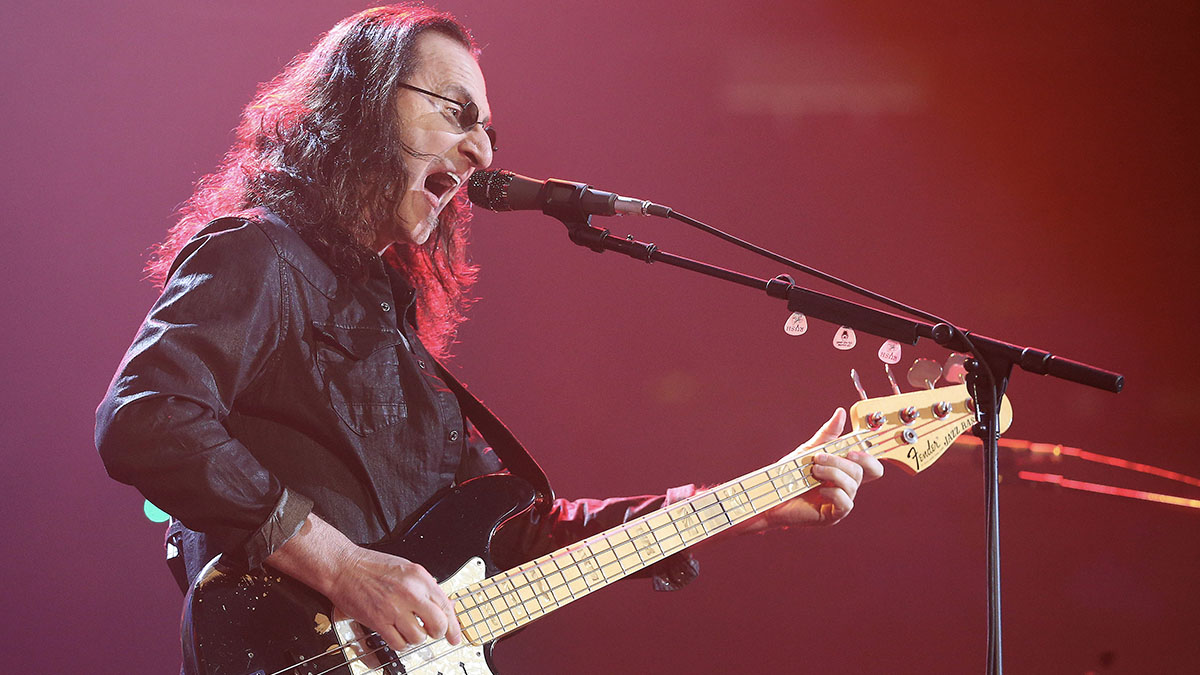Rush’s Geddy Lee on A Farewell To Kings, Les Claypool the bassist, and what he thinks of Primus playing the album live in its entirety
Playing A Farewell To Kings in full is not for the fainthearted. Even Geddy Lee, the man who recorded it, thought Les Claypool “was a little bit nuts” for attempting it

If there was going to be one band on the planet with the desire, the chops and the derring-do to dive headlong into a madcap endeavor such as performing Rush’s 1977 prog landmark A Farewell To Kings live it was Primus.
That’s just the sort of thing that its bassist and frontman Les Claypool would do, right? Rush super-fan, friend of the band, and one of the world’s foremost practitioners of bass guitar. There are few, if any, players more qualified.
But having heard Claypool’s side of the story about how Primus’s A Tribute To Kings Tour, we thought we’d give Geddy Lee a call to see what the Rush bassist made of all this, and indeed, how he looks back on A Farewell To Kings and the changes in his playing since the recording.
Lee has nothing but love for Claypool and Primus, but does offer a warning – this material is a lot easier to record than it is to perform live.
How does the Geddy Lee who recorded A Farewell To Kings in 1977 compare to the Geddy of today?
“I’d say that as I have gotten older, my playing has become more rhythmic, more nuanced and fluid, as opposed to my slightly more aggressive younger self.
“Since 1977 my tone has evolved from a deep and twangy, strident Ricky tone, to kind of a ‘souped up’ Fender Jazz sound, which gives me a bouncier lower mid and bottom end, with a bit more fuzz on my midrange twang.
Get The Pick Newsletter
All the latest guitar news, interviews, lessons, reviews, deals and more, direct to your inbox!
“The lower midrange presence I’m getting now might be the biggest difference between my tone then and now.”
How do you think the original bass parts stand up?
“Damn, you mean I have to listen to them again? Okay... well, I think they stand up pretty well and are very much reflective of the period – which means we were writing with a ‘live’ approach in mind, not too many overdubs, so we could reproduce them accurately onstage. As such there was lots of space in the track for my sound, as well as my fairly busy, prog-rock bass parts.”
Recording my bass on A Farewell To Kings was not as challenging as playing those same parts live
Would you record them differently nowadays, and if so how?
“These days I use my own array of solid-state devices, plus a mic’d speaker cab if I need some room sound on the top, or some extra air movement in the bottom end. It is not unusual for me to use three or four channels on the mixing console, one for each device and each slightly different, and I mix those according to what the song needs, or how indulgent I want to get!
“In the old days, it was two sets of amps, fed by the pickup split on my Rickenbacker 4001 Rick-O-Sound output. So the bass pickup would go to one set of amps and then an old tube compressor, and the treble pickup would go to its own setup and a different type of compressor, so I could crunch the sound individually… plus a DI in case I needed it during the mix for presence, or to put it in some extra effects.”
Which are the most challenging bass parts on the album, as you see it?
“Recording my bass on A Farewell To Kings was not as challenging as playing those same parts live. Cygnus X-I, for example, was big fun to record, but onstage Neil and I had to be feeling all the stops and starts in exactly the same time frame.
“Singing and playing those parts is always more challenging than simply playing the instrument bits, regardless of their complexity, because when I’m not singing, I can devote my full attention to playing them correctly.
“If anything, perhaps the most challenging parts to record were the funkier parts of Cinderella Man, where I was pushing myself for the first time into a slightly different style of play.”
What was your reaction when Les expressed his desire to play the album live with Primus?
“I was very complimented, of course, and then I thought he was a little bit nuts, but by all accounts it’s quite an impressive performance and a real tribute, performed by an awesome band.”
What are Les’s strengths as a bassist?
“Les has a unique rhythmic sensibility. I find his playing to be an amalgam of various styles: he can slap, twang, or run up and down the neck like a jazz player. His tone is original, deep, and true, and he’s developed a style that is deliciously eccentric.”
Tell us you’re going to come out and play a guest solo at one of the Primus shows…
“Haha! Now there’s a random suggestion!”
“A virtuoso beyond virtuosos”: Matteo Mancuso has become one of the hottest guitar talents on the planet – now he’s finally announced his first headline US tour
“His songs are timeless, you can’t tell if they were written in the 1400s or now”: Michael Hurley, guitarist and singer/songwriter known as the ‘Godfather of freak folk,’ dies at 83












